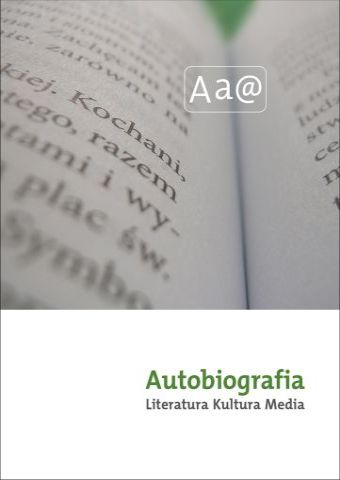






| Authors: |
MONIKA
BEDNARCZUK

Uniwersytet w Białymstoku |
| Keywords: | history of science in the 18th century knowledge dissemination German scientists in Poland-Lithuania accounts from Vilnius letters of Georg Forster |
| Data publikacji całości: | 2019-01-31 |
| Page range: | 16 (103-118) |
| 1. | Barker, Chris. Studia kulturowe. Teoria i praktyka. Tłum. Agata Sadza. Kraków: Wydawnictwo Uni¬wersytetu Jagiellońskiego, 2005. |
| 2. | Biegeleisen, Henryk. „Cudzoziemiec w katedrze wileńskiej”. Odb. z Muzeum 1892 (Lwów): 97–104, 148–162. |
| 3. | Bömelburg, Hans-Jürgen. „Georg Forster und das negative deutsche Polenbild. Ein Kosmopolit als Architekt von nationalen Feindbildern?”, Mainzer Geschichtsblätter 8 (1993): 79–90. |
| 4. | D’Aprile, Iwan-Michelangelo. „Aufgeklärter Kulturpluralismus. Osteuropa als Erfahrungsraum kultureller Vielfalt in der deutschsprachigen Aufklärung”. W: Aufklärung und Kulturtransfer in Mittel- und Osteuropa, red. Agnieszka Pufelska, Iwan-Michelangelo D’Aprile, 53–68. Han¬nover: Wehrhahn Verlag, 2009. |
| 5. | Forster, Jerzy. „Dziennik podróży po Polsce”. Przeł., wstępem i przypisami opatrzył Wacław Zawadzki. Archiwum Historii Medycyny 21 (1958): 135–157, 293–319. |
| 6. | Forster, Georg. A Voyage round the World in His Britannic Majesty’s Sloop Resolution, Commanded by Capt. James Cook, during the Years, 1772, 3, 4, and 5. London: White, Elmsly & Rosington, 1777. |
| 7. | Forster, Georg. Werke. Sämtliche Schriften, Tagebücher, Briefe. T. 14: Briefe 1784-Juni 1787. Oprac. Brigitte Leuschner. Berlin: Akademie-Verlag, 1978. |
| 8. | Füssel, Marian. „Akademische Aufklärung. Die Universität des 18. Jahrhunderts im Spannungs¬feld von funktionaler Differenzierung, Ökonomie und Habitus”. W: Die Aufklärung und ihre Weltwirkung, red. Wolfgang Hardtwig, 48–73. Göttingen: Vandenhoeck and Ruprecht 2010. |
| 9. | Jolly, Margaretta, Stanley, Liz. „Letter As/Not a Genre”. W: The Routledge Auto/Biography Studies Reader, red. Ricia Anne Chansky, Emily Hipchen, 193–201. London–New York: Routledge, 2016. |
| 10. | Jundziłł, Stanisław Bonifacy. Pamiętniki. Oprac. Antoni M. Kurpiel. Kraków: Akademia Umiejęt¬ności, 1905. |
| 11. | Marzec, Lucyna. „List”. Forum Poetyki 1 (2015): 86–96. |
| 12. | Mikulski, Tadeusz. W kręgu Oświeconych. Warszawa: Państwowy Instytut Wydawniczy, 1960. |
| 13. | Ochenkowski, Władysław. „Listy cudzoziemca o Wilnie (1784–1787)”. Przewodnik Naukowy i Lite¬racki 7 (1879): 335–349. |
| 14. | Oleś, Piotr K. „Autonarracyjna aktywność człowieka”. W: Narracja: teoria i praktyka, red. Berna¬detta Janusz, Katarzyna Gdowska, Bogdan de Barbaro, 37–52. Kraków: Wydawnictwo Uniwer¬sytetu Jagiellońskiego, 2008. |
| 15. | Rybicka, Elżbieta. „Antropologiczne i komunikacyjne aspekty dyskursu epistolograficznego”. Tek¬sty Drugie 4 (2004): 40–55. |
| 16. | Salmonowicz, Stanisław. „Jerzy Forster a narodziny stereotypu Polaka w Niemczech XVIII/XIX wieku”. Zapiski Historyczne 52 (1987), 4: 135–147. |
| 17. | Schultz, Helga. „Georg Forster und Polen – Irritationen und Vorurteile”. W: Auf dem Weg in die Moderne. Radikales Denken, Aufklärung und Konservatismus, red. Birgitta Bader-Zaar, Marga¬rete Grandner, Edith Saurer, 47–63. Wien: Studienverlag, 2007. |
| 18. | Skwarczyńska, Stefania. Teoria listu. Na podstawie lwowskiego pierwodruku oprac. Elżbieta Felik¬siak i Mariusz Leś. Białystok: Wydawnictwo Uniwersytetu w Białymstoku, 2006. |
| 19. | Słabczyński, Wacław. „Jerzy Forster: pierwszy polski podróżnik naokoło świata”. Wiedza i Życie 19 (1952): 829–837. |
| 20. | Steiner, Gerhard. „Der Geist freier Fortschreitung im Brief und Essay Georg Forsters”. W: Der Weltumsegler und seine Freunde. Georg Forster als gesellschaftlicher Schriftsteller der Goethezeit, red. Detlef Rasmussen, 1–11. Tübingen: Günter Narr Verlag, 1988. |
| 21. | Trzebiński, Jan. „Narracyjne konstruowanie rzeczywistości”. W: Narracja jako sposób rozumienia świata, red. Jan Trzebiński, 16–42. Gdańsk: Gdańskie Wydawnictwo Psychologiczne, 2002. |
| 22. | Wójcik, Zbigniew. „Johannes Georgius Adamus Forster, His Voyages and Polish Relations”. Polish Polar Research 1 (1989), 10: 31–45. |